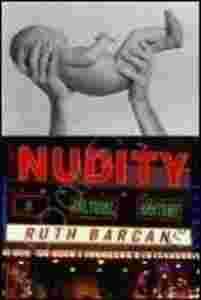|
Nudity features regularly in all major media. So
why is it illegal to appear naked in public? Nudity has
always been paradoxical. In modern consumer culture, it
is actively encouraged in some contexts, but criminal or
deviant in others. Images of nudity are everywhere.
Advertising uses nudity to sell everything from housing
loans to appliances, perfume to cars. Nudity has, in
fact, become the latest fashion. This is not surprising.
Advertising and fashion need a constant stream of
novelty and there's nothing so new as nudity, the oldest
fashion of all. Aside from being big business, nudity is
a legal and moral minefield, the object of psychological
study, and a mundane fact of everyday life. We
alternately think of it as a perversion and a state of
absolute innocence. Why does nudity mean so many
contradictory things, and why is it treated so
differently in different contexts? Drawing on a wealth
of examples from popular culture, literature, philosophy
and religion, as well as first-hand interviews, Nudity:
A Cultural Anatomy goes deep into the naked underworld
to answer these questions. Barcan encounters morticians,
nudists, strippers, nurses, tattooists, artists and
makers of pornography. She demonstrates that ordinary
people, popular culture and high philosophy are all
sources of wisdom about the naked body. Nudity is one of
the most fundamental metaphors in the Western tradition
- indeed, it is a metaphor for human nature itself - and
yet this book is one of the first to explore its
paradoxes in depth. Barcan's mission is to shine a light
on a topic that has been largely ignored, even within
cultural studies, despite its ability to titillate,
shock or entertain. From pubic hair fashions through to
a Royal "full monty," Nudity: A Cultural Anatomy is a
fascinating blend of meaningful minutiae and big
philosophical questions about the most unnatural state
of nature in the modern West.
|
|

